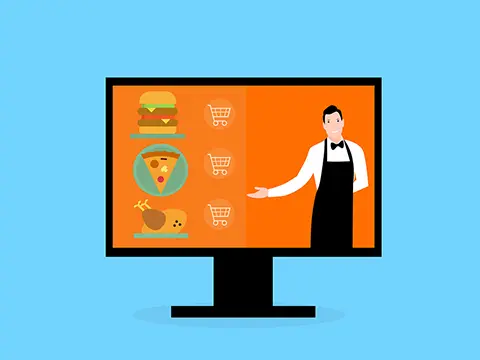At its core, a POS system handles sales transactions. It processes payments, whether through cash, credit/debit cards, or digital wallets. Modern POS systems often include additional functionalities, such as barcode scanning, receipt printing, and real-time inventory tracking. They integrate with various payment processors to facilitate seamless transactions and ensure accurate financial records. The ability to manage sales data, generate reports, and track customer information makes POS systems indispensable for businesses looking to streamline their operations and gain insights into their sales performance. Effective inventory management is a key feature of contemporary POS systems. By integrating with inventory management software, POS systems help businesses keep track of stock levels, manage reorder points, and prevent stockouts or overstocking. Real-time updates ensure that inventory data is always accurate, which helps in making informed purchasing decisions. Additionally, some POS systems offer advanced features like automated reordering and alerts for low stock, which can significantly reduce manual tracking efforts and optimize inventory levels. A POS system's ability to manage customer relationships is increasingly important in today’s competitive market. Modern POS systems often come with built-in CRM features that track customer purchases, preferences, and contact information. This data allows businesses to personalize marketing efforts, offer targeted promotions, and enhance customer loyalty. CRM functionalities also facilitate customer support by providing detailed purchase histories and preferences, enabling businesses to offer a more personalized and responsive service. Sales reporting and analytics are critical for understanding business performance and making informed decisions. POS systems provide comprehensive reporting tools that track sales trends, monitor performance metrics, and analyze customer behavior. Reports can include daily sales summaries, product performance analyses, and detailed financial statements. These insights help businesses identify strengths and weaknesses, adjust strategies, and make data-driven decisions to improve profitability and operational efficiency. One of the significant advantages of modern POS systems is their ability to integrate with other business tools. Integration with accounting software, e-commerce platforms, and marketing tools helps create a unified ecosystem that streamlines operations and reduces manual data entry. For example, syncing with accounting software ensures that sales transactions are automatically recorded, reducing the risk of errors and simplifying financial management. Integration with e-commerce platforms allows for seamless management of online and in-store sales, providing a cohesive customer experience. The advent of mobile and cloud-based POS systems has revolutionized how businesses operate. Mobile POS systems, often using tablets or smartphones, offer flexibility and mobility, allowing businesses to process transactions from anywhere within the store or even off-site. Cloud-based POS systems store data online, providing access from multiple devices and locations. This accessibility enables real-time updates, remote management, and easy scalability. Cloud-based solutions also offer regular updates and backups, ensuring data security and minimizing downtime. Security is a paramount concern for any POS system, given the sensitive nature of payment information and customer data. Modern POS systems incorporate advanced security features such as encryption, tokenization, and secure payment gateways to protect against data breaches and fraud. Regular software updates and compliance with industry standards, such as the Payment Card Industry Data Security Standard (PCI DSS), are essential for maintaining a secure POS environment. Businesses should also implement strong access controls and staff training to further safeguard against potential security threats. Selecting the right POS system involves evaluating several factors to ensure it meets your business needs. Considerations include the system’s functionality, ease of use, integration capabilities, and cost. It’s also important to assess customer support and training provided by the vendor. Businesses should evaluate their specific requirements, such as inventory management needs, CRM capabilities, and reporting requirements, to find a system that offers the best fit. Demoing different systems and reading customer reviews can provide valuable insights into the effectiveness and reliability of potential solutions. The POS industry is continually evolving, with emerging trends shaping the future of business transactions. Advancements in technology, such as artificial intelligence (AI) and machine learning, are enhancing POS systems’ capabilities, enabling more sophisticated data analysis and predictive analytics. Contactless payments and biometric authentication are becoming increasingly popular, offering greater convenience and security. Additionally, the integration of POS systems with other technologies, such as Internet of Things (IoT) devices and augmented reality (AR), promises to further enhance the customer experience and streamline business operations. Point of Sale (POS) systems are integral to modern business operations, offering a range of features that go beyond traditional cash registers. From inventory management and CRM to sales reporting and security, POS systems play a crucial role in streamlining processes and enhancing customer interactions. By understanding the various functionalities and trends associated with POS systems, businesses can make informed decisions and select solutions that align with their needs. As technology continues to advance, staying updated on the latest trends and innovations in POS systems will help businesses remain competitive and efficient in an ever-evolving market.Core Features of POS Systems
Inventory Management
Customer Relationship Management (CRM)
Sales Reporting and Analytics
Integration with Other Business Tools
Mobile and Cloud-Based POS Systems
Security Considerations
Choosing the Right POS System
Future Trends in POS Systems
Conclusion
How to Choose the Perfect POS System for Your Business Needs
This article explores the various facets of POS systems, including their features, benefits, and considerations for choosing the right system for your business. Understanding the capabilities of a POS system can help streamline operations, enhance customer experiences, and drive overall business success.

